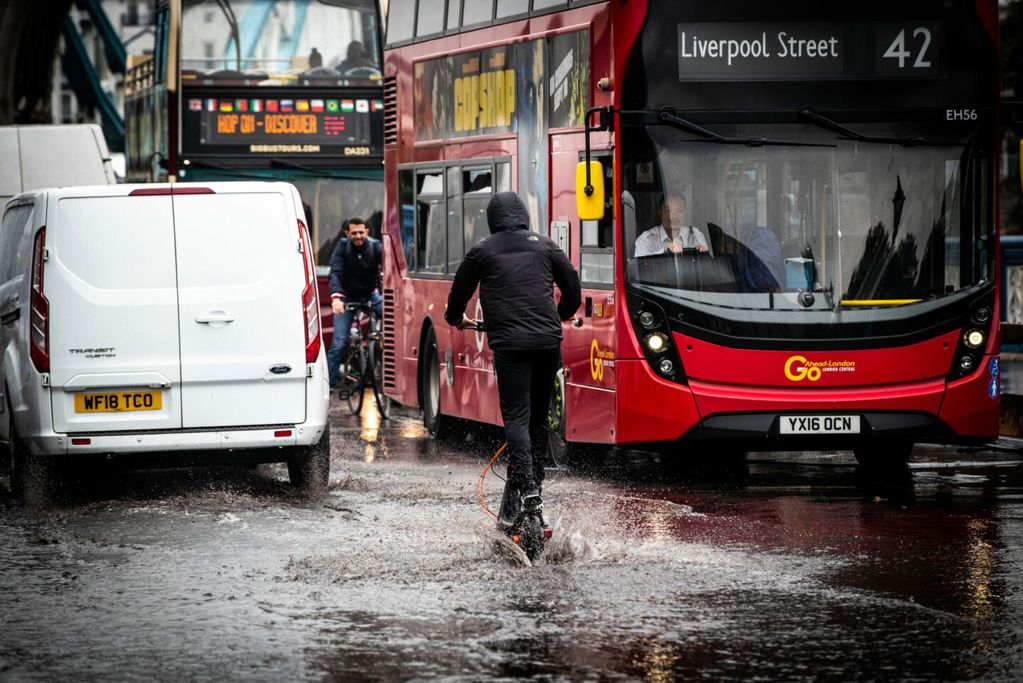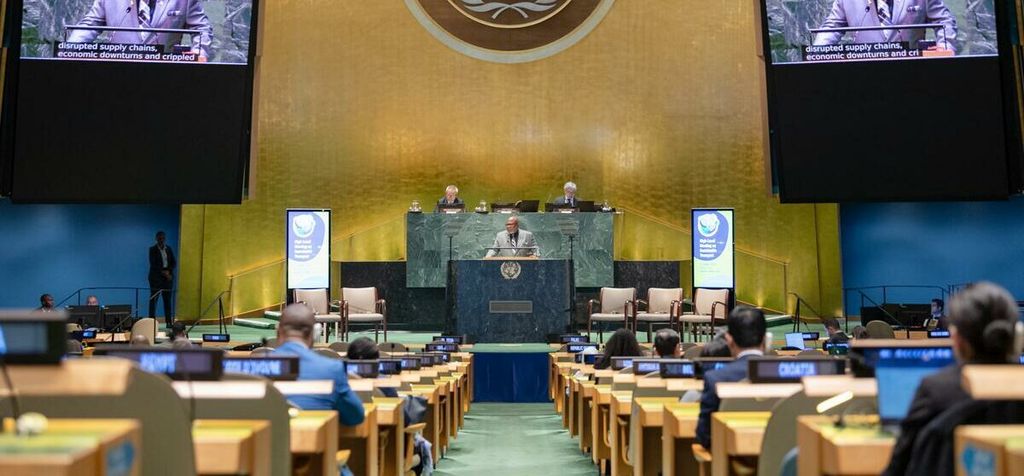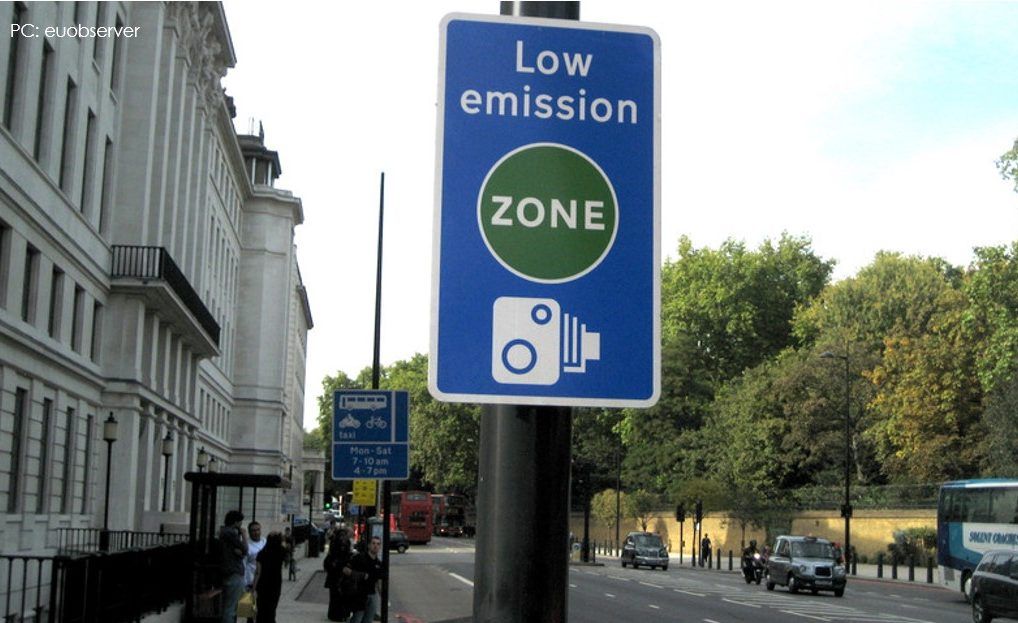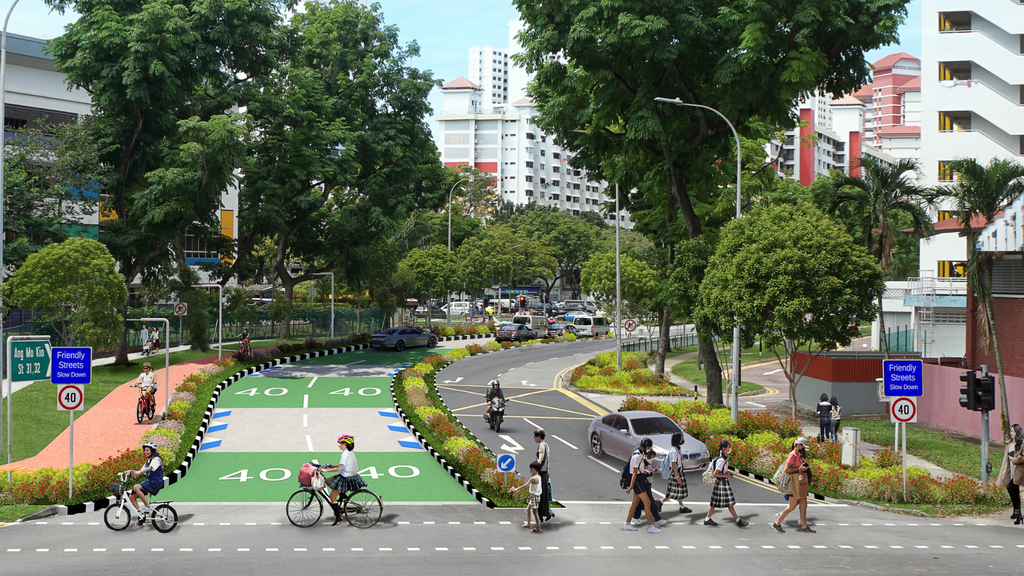
What about the here and now? Climate resilience and adaptability
Adapting to climate change
Starting in December 2019, Australian bushfires burned an estimated 18.6 million hectares of land and destroyed over 5,900 buildings. Heavy rains swept across Germany in July 2021, causing flash flooding and an estimated €30 billion of damage. The effects of climate change are undeniably affecting people and the planet. The much-anticipated UN Climate Change synthesis Report published in March clearly outlines that the 1.5°C limit is still achievable but requires critical action across sectors and by everyone at all levels. The report focuses on action that considers climate justice and focuses on climate resilient development.
When we in the public transport sector think about climate change, the dialogue often shifts towards reducing our footprint and decarbonisation. But, what about the impacts happening in the here and now? Climate change is already causing heatwaves, storms, flooding and droughts. In adapting to climate change for future climate impacts, the public transport sector also needs build in resilience and mitigate carbon emissions for safe, inclusive, and sustainable continued service to its communities.
Well then it is a good thing that UITP’s Sustainable Development Committee and Organsing Authority Committee are working together on the topic, identifying best practices and developing knowledge and action…
The most important thing for public transport authorities is climate resilience. How do we strengthen public transport against the effects of climate change? We require holistic and intersectoral adaptation strategies.”
Transport for London Climate Change Adaptation Plan
Transport for London (TfL), has recently published their first ever climate change adaptation plan. Having been at the brunt of severe flooding events, storms and fires as a result of heatwaves, the British public transport authority recognised that the cost of non-action was too high. In July 2022, the heatwave exceeded 40°C and led to £8 million loss of revenue. In addition, customers and staff were taken ill and there were infrastructure failures. Despite emergency plans put in place beforehand and generally a good level of resilience, adaptation to extreme weather has become vital to ensure a reduction in the impacts of future extreme events in the first place and consequently a reduction in the need for resilience measures.
Their Climate Change Adaptation Plan is a strategic approach for managing climate risks. It aims to ensure TfL can provide transport services, consistent customers services and an accessible and financially sustainable network.
Adaptation can include a wide range of different actions to protect people from climate risk. These include on-the-ground measures, such as rain gardens and infrastructure cooling systems, as well as fundamental changes to ways of working by integrating climate risk and adaptation into everything from governance to risk management systems, and from standards to data collection.
One way TfL ensures that everyone is working towards the same green vision is through extensive upskilling of staff and education on the risks of doing nothing. As part of their Carbon Literacy training, they trained 800 staff last year and plan to train another 3,000 by March 2024.
Changes to organisational mindset are crucial if we are to achieve our climate objectives. Education and building confidence can be slow-going and challenging but is it about creating pull-factors for staff to adapt themselves, show initiative to do more, rather than just enforcing top-down sustainability measures.
France’s Energy and Climate Strategy
In 2020, Storm Alex led to the destruction of roads and disruption to water, electricity and telecommunication networks in some valleys of the Alpes Maritimes. The damage was estimated by the local authorities at more than one billion euros.
Anticipating such impacts can improve the implementation and effectiveness of existing crisis management systems, by improving the robustness and general resilience of infrastructures and limiting risks.
The national Energy-Climate strategy is currently being revised and will be published by 2024. Adaptation to climate change is a key aspect. The research and work done so far on electricity, road and rail transport and telecommunications networks highlights the vulnerability of the infrastructure at a time of rising average temperatures and flooding.
Most importantly, the work had identified how these networks are very much interlinked – both in everyday operation and in times of crisis. For example, electrical or telecommunications cables in close proximity to roads are affected by issues relating to those roads, and telecommunications networks are dependent on the power supplied to them. Such networks are therefore vulnerable to climate change.
However, measures taken in response to these risks have usually been tackled in silos, which means that interdependencies must be fully factored into adaptation strategies.
To address these challenges and contribute to the development of the ‘adaptation’ component of France’s new Energy-Climate Strategy, France Stratégie has drawn up a series of actions for the State:
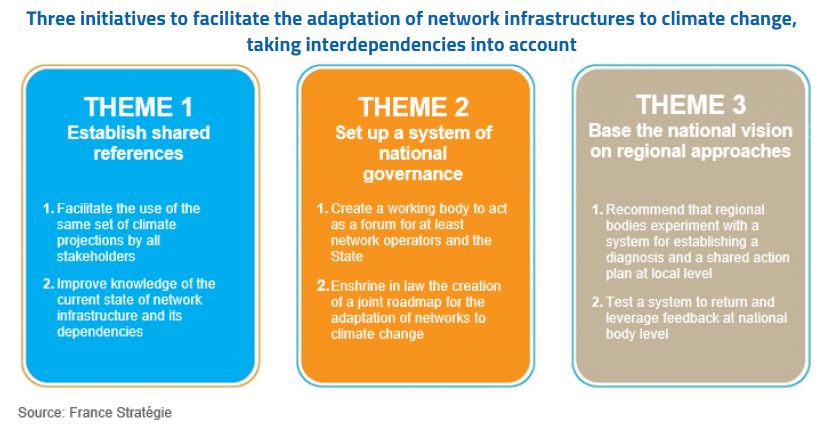
Bright light of the city
As the UITP Global Public Transport Summit draws closer, we explore the innovations, research, and the people behind our six themes.
This article falls within the theme of Transitioning to Net Zero. Discover the other themes and programme of the 2023 UITP Summit on uitpsummit.org!
The UITP Global Public Transport Summit is the world’s biggest event dedicated to sustainable mobility which brings together all transport modes, industry authorities and operators, as well as exhibitors. Under the theme “Bright Light of the City”, access a wide range of thematic sessions, knowledge and networking opportunities in Barcelona from 4 to 7 June.
opportunities



